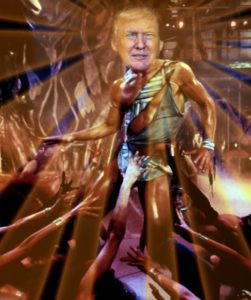 “A sensibility is one of the hardest things to talk about.” So begins Sontag’s Notes on “Camp” in the 1964 Partisan Review. And what of the political anger and disillusionment across the United States and in the developed world? What of the gnawing desire towards superiority and control that accompanies authoritarian urges? What of the fear of loss of power to minority ethnic and religious groups? These may be the most discussed sociopolitical aspects of our modern political sensibility since Trump’s election in 2016 when a bitter, vindictive, hostile, crude, fat thug briefly took the reigns of America, then pushed and conspired to oppose the election of his successor.
“A sensibility is one of the hardest things to talk about.” So begins Sontag’s Notes on “Camp” in the 1964 Partisan Review. And what of the political anger and disillusionment across the United States and in the developed world? What of the gnawing desire towards superiority and control that accompanies authoritarian urges? What of the fear of loss of power to minority ethnic and religious groups? These may be the most discussed sociopolitical aspects of our modern political sensibility since Trump’s election in 2016 when a bitter, vindictive, hostile, crude, fat thug briefly took the reigns of America, then pushed and conspired to oppose the election of his successor.
What attracted his followers to him? I never encountered a George W. Bush fanatic during his presidency. Though not physically small, he talked about “compassionate conservatism” with a voice that hung in the upper register of middle pitches for men. He was neither sonorous nor mean. His eyebrows often had a look of surprise and self-doubt that was hinted at in claims he was a very reluctant candidate for president. I met people who voted for him but they seemed to accept him as an acceptable alternative to Gore or, later, to Kerry—not as a figure of passionate intrigue. Bush Jr. did receive a rally-around-the-flag effect that was based on circumstances that would later bring rebuke over the casus belli of the Iraq War. Similar sensibilities were true of the Obama years—there was a low positivity for him on the Left combined with a mildly deranged antagonism towards him on the Right.
Was the lack of Trump-like animating fanaticism due to the feeling that Bush Jr. was a compromise made to the electorate while Trump was, finally, a man who expressed the real hostility of those who vote Republican?… Read the rest